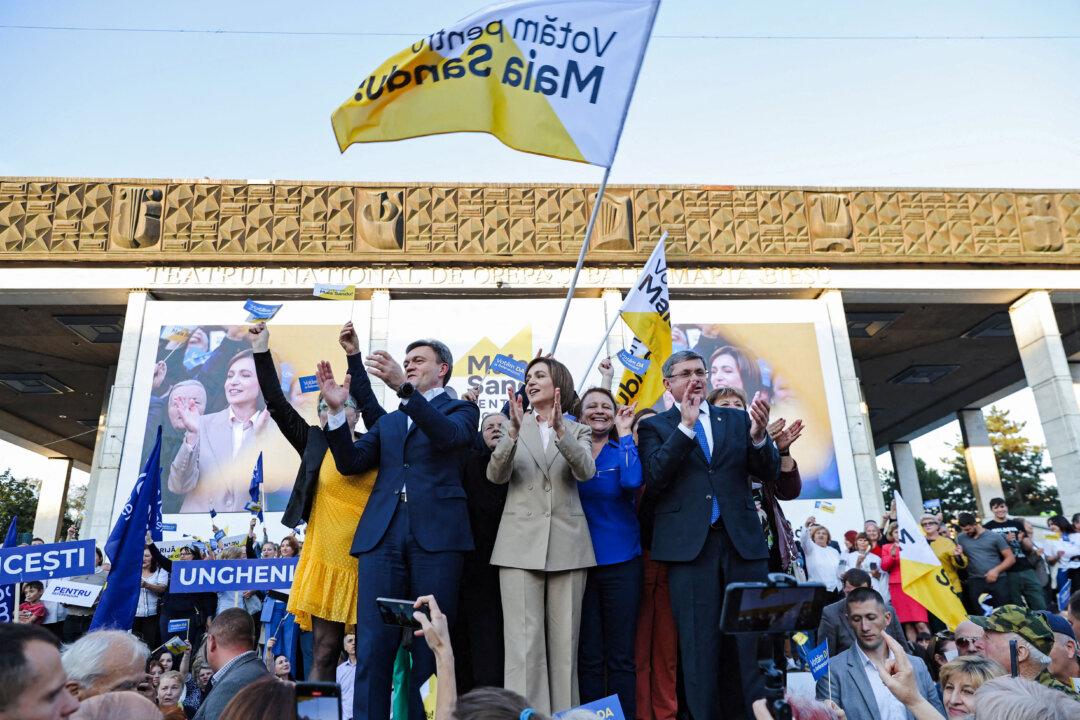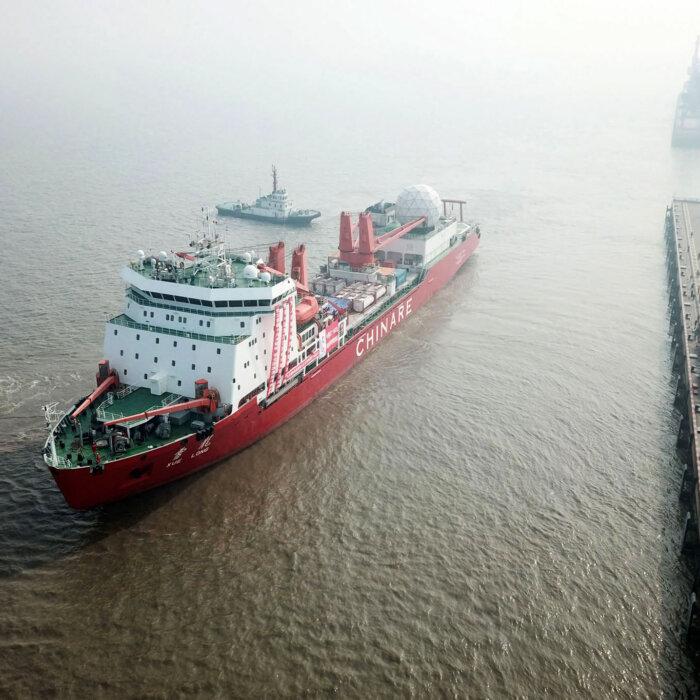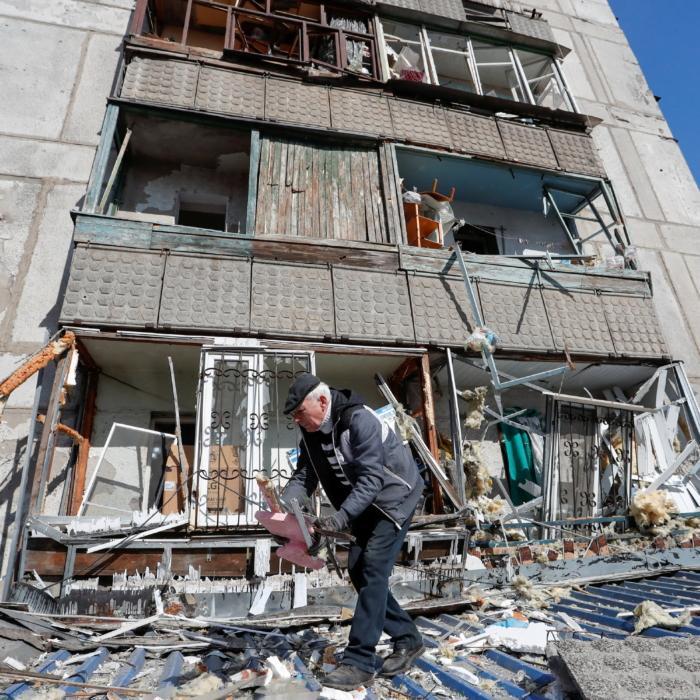Moldova’s police chief says pro-Russian elements are paying off tens of thousands of voters in a bid to stymie the country’s plans to join the European Union.
National police chief Viorel Cernauteanu said more than 130,000 Moldovans had been bribed to vote no in the EU referendum on Oct. 20 and in favor of pro-Kremlin candidates in an election taking place on the same day. He said it was an “unprecedented, direct attack.”
Cernauteanu told a press conference on Oct. 3, “We are faced with the widespread phenomenon of financing and corruption with the aim of disrupting the electoral process in Moldova.”
He said around $15 million had been transferred in September to accounts opened at Russia’s Promsvyazbank.
Moldovan President Maia Sandu has called a referendum asking voters if Moldova should join the 27-member bloc.
Moldova was officially granted EU candidate status in June 2022.
Sandu, who is also seeking reelection in a presidential election on the same day, has urged voters to vote yes in the referendum and has accused Russia of trying to overthrow her government, an accusation the Kremlin has denied.
In February 2023, after Sandu accused Russia of trying to overthrow her government, Russian foreign ministry spokeswoman Maria Zakharova said the accusation was “absolutely unfounded and unsubstantiated.”
“They are built in the spirit of classical techniques that are often used by the United States, other Western countries and Ukraine. First, accusations are made with reference to purportedly classified intelligence information that cannot be verified, and then they are used to justify their own illegal actions,” Zakharova said.
In June 2023, the Moldovan Constitutional Court banned the SOR Party, which had been led by Ilan Shor, a pro-Russia businessman who relocated to Russia earlier this year.
Shor was jailed in absentia for 15 years on fraud charges in April 2023 and was accused of taking $1 billion from Moldovan banks.
Ukraine Is Moldova’s Neighbor
Moldova has a Romanian-speaking majority and a Russian-speaking minority, and is sandwiched between Romania—which is a member of both the EU and NATO—and Ukraine.After the Soviet Union broke up in 1991, ethnic Russians sought to break away from Moldova, and today a thin sliver of territory known as Transnistria still maintains its autonomy in the east of the country, backed up by Russian troops.
Eleven candidates are standing in the presidential election on Oct. 20 and they range from fiercely pro-West to strongly pro-Russian.
On Sept. 29, a Moldovan government minister urged voters to shun “thieves, fugitives and bandits” in the approach to the upcoming referendum.
Infrastructure Minister Andrei Spinu, who is head of Sandu’s campaign team, said opponents of the president were “using money to buy votes and people.”
“They are using propaganda to spread lies about the European Union and frighten people with all sorts of tall tales,” he wrote in a post on Telegram.
Sandu strongly denounced Russia’s invasion of Ukraine and believes Moscow poses an exponential threat to Moldova.
She said of the referendum: “The liars are now trying to intimidate us and oblige us to take decisions other than those that we want. We must not let them decide our own fate.”
Both Sandu and one of her main challengers, Alexandr Stoianoglo, hold both Moldovan and Romanian passports.
Stoianoglo is supported by the pro-Russian Party of Socialists.







